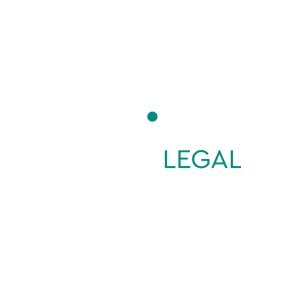Best Environmental Law & Compliance Lawyers in Mauritius
Share your needs with us, get contacted by law firms.
Free. Takes 2 min.
Or refine your search by selecting a city:
List of the best lawyers in Mauritius
About Environment Law in Mauritius
Environment law in Mauritius encompasses a broad array of regulations aimed at protecting the island's unique ecosystems, ensuring sustainable development, and maintaining biodiversity. As a tropical island nation, Mauritius faces various environmental challenges including coastal erosion, deforestation, waste management, and the preservation of marine and terrestrial habitats. The country's environmental legal framework is designed to address these challenges and to promote the responsible use of natural resources.
Why You May Need a Lawyer
There are several scenarios in which individuals or businesses in Mauritius might require legal assistance in relation to environmental law. Common situations include:
- Obtaining environmental permits for construction and development projects.
- Understanding compliance requirements with Mauritius' environmental regulations.
- Dealing with allegations of environmental violations, such as illegal dumping or pollution.
- Engaging in disputes related to land use or natural resource management.
- Pursuing legal recourse in cases of environmental harm caused by third parties.
- Participating in environmental impact assessments and public consultations.
Local Laws Overview
The environmental legal framework in Mauritius is primarily governed by the Environment Protection Act. Key aspects include:
- Environmental Impact Assessment (EIA): This is required for certain projects to assess potential environmental consequences before proceeding.
- Waste Management: Regulations focus on the proper disposal, treatment, and recycling of waste to minimize environmental hazards.
- Pollution Control: Standards and regulations aim to limit air, water, and soil pollution from various sources.
- Conservation Areas: Specific laws protect designated parks, reserves, and biodiversity hotspots to preserve the island's natural heritage.
- Marine Environment Protection: Focused on safeguarding coral reefs, marine life, and coastal areas from degradation and over-exploitation.
Frequently Asked Questions
What is required for an environmental impact assessment?
An environmental impact assessment in Mauritius typically involves a detailed study of how a proposed development project might affect the environment, including suggestions for mitigating negative impacts.
How can businesses comply with waste management regulations?
Businesses can comply by properly segregating waste, using authorized waste disposal services, recycling where possible, and adhering to guidelines set out by environmental authorities.
What penalties exist for violating environmental laws?
Penalties for violating environmental laws can include fines, legal sanctions, suspension of permits, and in severe cases, criminal charges.
Are there incentives for using renewable energy sources?
Yes, the Mauritian government encourages the use of renewable energy through incentives and support programs aimed at reducing reliance on non-renewable sources.
How is marine pollution regulated in Mauritius?
Marine pollution is regulated through laws aimed at preventing oil spills, controlling marine debris, and reducing runoff from land-based activities that might harm marine ecosystems.
What role do NGOs play in environmental protection in Mauritius?
Non-Governmental Organizations (NGOs) in Mauritius play a significant role in advocating for stronger environmental policies, conducting research, and raising public awareness about environmental sustainability.
Can individuals participate in public consultations on environmental issues?
Yes, the public is encouraged to participate in consultations, especially when projects involve significant environmental impacts. Public input is often sought as part of the EIA process.
What are the main threats to biodiversity in Mauritius?
Main threats include habitat loss due to development, invasive species, pollution, and climate change impacting natural habitats.
How does the government address coastal erosion?
The government implements measures such as coastal vegetation restoration, construction of sea walls, and regulatory policies to protect against and adapt to coastal erosion.
Are there specific laws for environmental conservation on private lands?
Yes, landowners may be required to follow specific conservation guidelines, especially if their property overlaps with protected areas or contains significant natural features.
Additional Resources
For further information and assistance, the following resources can be invaluable:
- Ministry of Environment, Solid Waste Management and Climate Change: The main governmental body responsible for environmental governance.
- Mauritius Research Council: Offers insights into research initiatives related to environmental conservation and policy development.
- Local Environmental NGOs: Organizations such as the Mauritian Wildlife Foundation, which work on conservation projects and awareness campaigns.
- Legal Aid Websites: Provide resources and information about obtaining legal assistance specifically for environmental matters.
Next Steps
If you need legal assistance regarding environmental issues in Mauritius, consider taking the following steps:
- Identify the specific environmental issue you are facing and gather any relevant documentation and evidence.
- Research and consult with lawyers who specialize in environmental law to understand your rights and obligations.
- Contact governmental bodies or NGOs for additional support or information relevant to your situation.
- If necessary, prepare to engage in legal proceedings, ensuring you have all necessary permits, impact assessments, and compliance documents.
- Stay informed about changes in environmental law and regulations that may affect your rights or obligations.
Lawzana helps you find the best lawyers and law firms in Mauritius through a curated and pre-screened list of qualified legal professionals. Our platform offers rankings and detailed profiles of attorneys and law firms, allowing you to compare based on practice areas, including Environmental Law & Compliance, experience, and client feedback.
Each profile includes a description of the firm's areas of practice, client reviews, team members and partners, year of establishment, spoken languages, office locations, contact information, social media presence, and any published articles or resources. Most firms on our platform speak English and are experienced in both local and international legal matters.
Get a quote from top-rated law firms in Mauritius — quickly, securely, and without unnecessary hassle.
Disclaimer:
The information provided on this page is for general informational purposes only and does not constitute legal advice. While we strive to ensure the accuracy and relevance of the content, legal information may change over time, and interpretations of the law can vary. You should always consult with a qualified legal professional for advice specific to your situation.
We disclaim all liability for actions taken or not taken based on the content of this page. If you believe any information is incorrect or outdated, please contact us, and we will review and update it where appropriate.
Browse environmental law & compliance law firms by city in Mauritius
Refine your search by selecting a city.
















